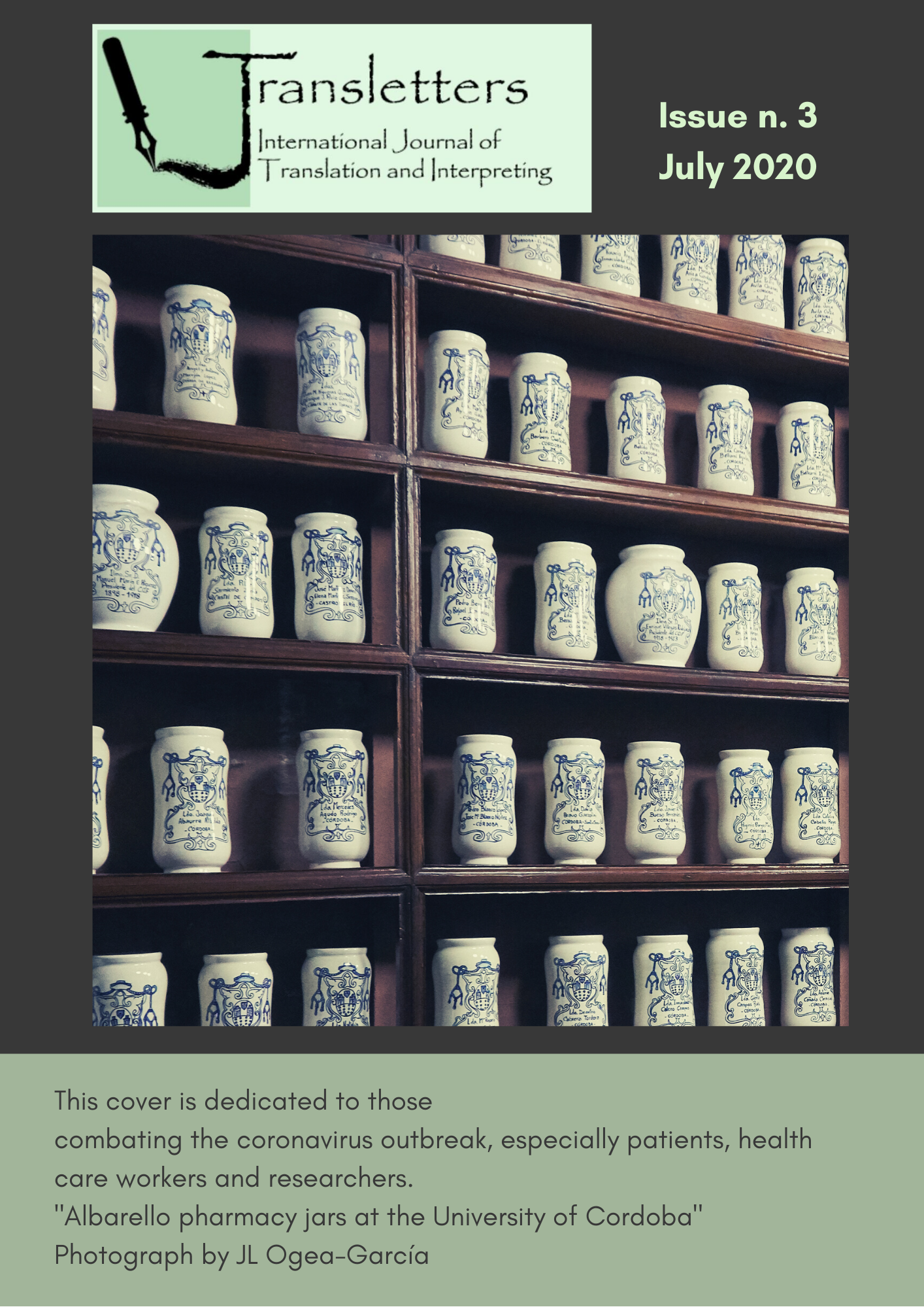Subtitling a Political Film: Linguistic and Ideological Transfer in The Iron Lady (2011)
Contenido principal del artículo
Resumen
This paper explores the linguistic and ideological transfer in the British film The Iron Lady (2011) from the official source of its Chinese subtitles. Taking the rhetorical approach used in the original political speeches by Margaret Thatcher as a starting point, the paper first provides an overview of her political stance and the comparison between British and Chinese political systems. Charteris-Black (2005) and Zhang’s (2016) classification of political rhetoric are used to scientifically group the examples of Thatcher’s political discourse in the film. Subsequently, it will use Díaz-Cintas’s (2012) ideological manipulation in Audiovisual Translation and Lefevere’s (2002) claim that translation is in whatever form a politically-loaded form in Translation Studies to testify the ideological representation of the Chinese subtitles in the case study. The back translation of the original subtitles could prove that the way in which linguistic and ideological values are translated depends not only on political asymmetries between these two countries but also on fundamental decisions. These decisions are multifaceted including the political context of China and its culture and the acceptance from the target audience. After considering the British political context and Chinese politics as a sub-context when subtitling British politics in this film, it is suggested that the translation of politics should be considered beyond its traditional linguistic sphere by focusing more on the rationale behind ideological motivation and manipulation and by contextualising them with a wider socio-cultural environment in the target text and for the target audience.
Descargas
Detalles del artículo
Política propuesta para las revistas que ofrecen acceso abierto
Los/as autores/as que publican en esta revista aceptan las siguientes condiciones:
1. Los/as autores/as conservan los derechos de autor y conceden a la revista el derecho de primera publicación con el trabajo licenciado simultáneamente bajo una Licencia de Atribución de Creative Commons, la cual permite a otras personas compartir el trabajo con un reconocimiento de la autoría del trabajo y la publicación inicial en esta revista.
2. Los/as autores/as pueden establecer acuerdos contractuales adicionales para la distribución no exclusiva de la versión publicada del trabajo en la revista (por ejemplo, enviarlo a un repositorio institucional), con un reconocimiento de su publicación inicial en esta revista.
3. Se permite y anima a los/as autores/as a publicar su trabajo previo a la versión final publicada en esta revista una vez aceptado (por ejemplo, en repositorios institucionales o en su sitio web), ya que puede dar lugar a intercambios productivos, así como a una citación más temprana y mayor del trabajo publicado (Véase El efecto del acceso abierto).

